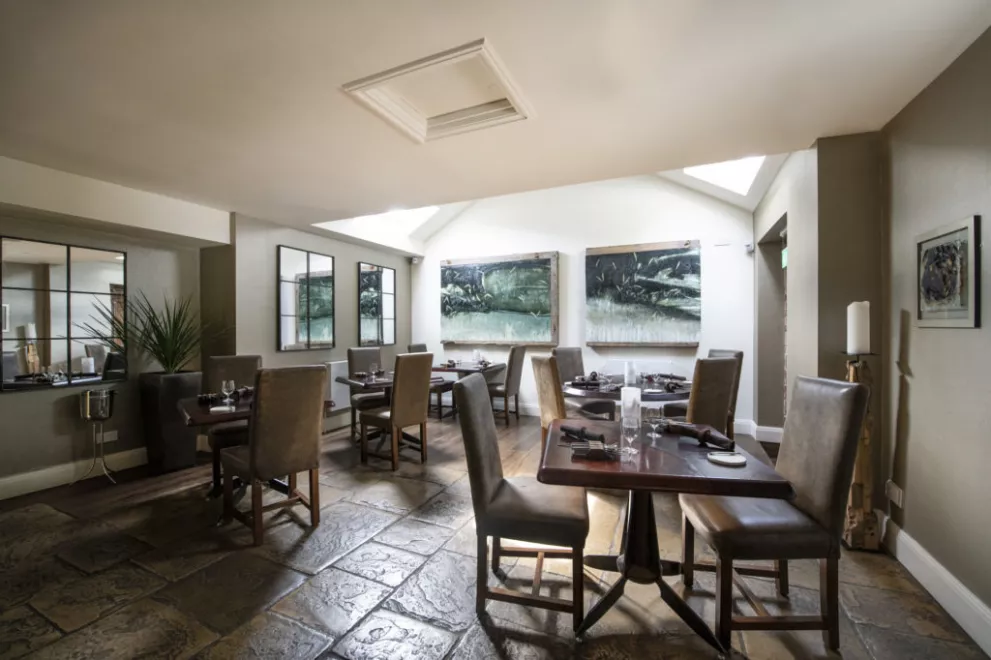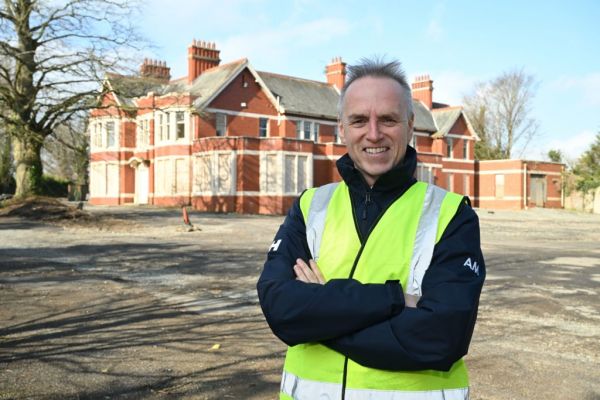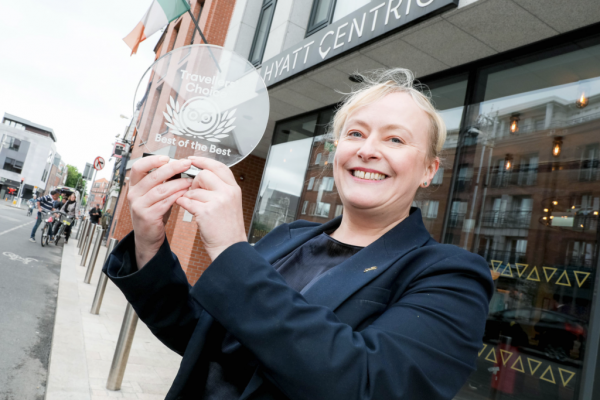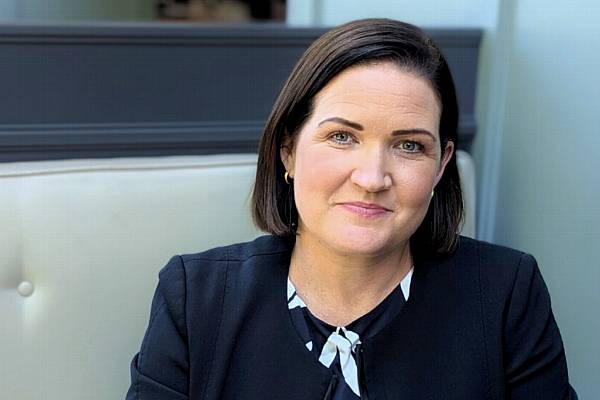SAT BAINS, chef-proprietor of the two-Michelin-starred Restaurant Sat Bains, in Nottingham, and a regular presence on TV screens in the UK and Ireland, talks to Hospitality Ireland about getting creative during lockdown and beyond.
This article was originally published in the Autumn 2021 issue of Hospitality Ireland Magazine, in October of 2021.
“Strange times” is – rightly – how Sat Bains describes the many months between March 2020 and reopening in summer 2021. “I think we coped by being creative,” he continues. “We made sure the staff were safe, the restaurant was locked down, made sure the stock was utilised in any way we could, and then we ultimately cleaned out – and then we had to adapt our marketing, so as to be ready to respond to the news at short notice. Me and Amanda [Bains’s wife, with whom he runs Restaurant Sat Bains] – we had a plan of action. We decided to launch a new business.
“[The business, MommaBains, is] homestyle Punjabi food – vegetarian and vegan – that can be eaten as part of a meal or, more simply, as a snack,” and during lockdown, Bains developed and launched it as a stand-alone aspect of what he does.
“What we thought,” he explains, “was that everyone was doing takeout and a version of their own restaurant from a box, but I don’t always think it translated well. Also, I wanted to do something different to that because I wanted people to look forward to coming back to the restaurant.”
Bains thought that if he gave people a version of what the restaurant could do better, that the return to dining wouldn’t be as exciting for them when it finally happened ...?
“Exactly. To create the kind of food we do – there’s 12 in the kitchen, 40 of us in total – you could call it a meal kit version, but I just thought it would be a diluted version,” and so he decided to do something different.
“Obviously, being from Punjabi heritage, I’ve got a plethora of Punjabi dishes of homestyle cooking that my mum’s done and my family’s picked up over generations, so I tapped into that,” he says, “and we launched MommaBains, which is my mum’s cooking. We did Punjabi homestyle because what we thought was, ‘This is what was missing when the pandemic hit: closeness, family togetherness, and sharing.’ So that’s the idea of Punjabi food, that it brings you all round together, together by the table.”
It was, Bains continues, “how I grew up, so I thought, ‘We’re all craving this, we’re all isolated, and we’re all craving this togetherness.’ Obviously, as a chef, you want to be with your team, and that just lends itself to the perfect match.
“Basically, we decided to be professional from day one, so it was going to be consistent, regulated. We could cook it, package it, pop it into the bag straight away – and that’s what we did. It was a phenomenal success. We bought a van, and we set up in the local park. You could order samosas and chicken curry, and so on, and that was really successful. We would do four curries in a box, and they went brilliantly. Once summer came, we slackened off a bit, and now, all of a sudden, we’re back to work [in the restaurant], but we’re also still working out of a public park this week.”

Back to full service
Engaged
How many people were they able to keep engaged with that? For a lot of restaurant businesses, it was very much about trying to keep staff involved.
“We kept nearly all of them involved. We had them on furlough, and then when we decided to do MommaBains, it was a case of getting them in and saying, ‘Right, we will make the samosas in the restaurant.’”
Under his mother’s watchful eye, Bains’s team “batch-cooked, upscaled, tried, tested and tasted. We upped the quantity, had it all professionally poked and prodded, making sure the quality and flavour remained the same. The samosas are handmade, and, there again, we streamlined the product. We got into a factory-style layout, whereby someone would make the mix, someone else would cut the pastry, and then the rest of us would fill it. We got it down to four samosas a minute – that’s near a world record” he laughs, “about 2,200 in six hours!”
Did they find that there was a market for all of them?
“Yeah.”
They sold through the van, but also through a local friend, John Molnar, from the Cod’s Scallops group of fish-andchip shops – winner of the Independent Fish & Chip Shop of the Year.
“John’s got four outlets and we sold there, and we’ve just launched in Harrods, with Tom Kerridge’s Fish & Chips.”
So this is something that he will keep going?
“Absolutely. It’s a great, authentic business, and it’s true Punjabi food. Every time we make a batch, me and my mum go up, we join the head chef, and we taste one or two, and we sign it off, and she’s blown away by the consistency of what we do. If you can imagine: mums don’t use scales – they use a pinch or a handful as a measure. Every dish always tastes a little bit different because there was always that free spirit of whatever she felt like on the day, but what we’ve done – because we’ve absolutely nailed the recipe – is make sure it’s absolutely consistent.”

Keeping the tables spaced out
Consistency
Speaking of consistency, how has the reopening been?
“It’s been a bit up in the air because there was always the social-distancing bit to endure, and then there was also the safety of our staff and our team and the customers – that was a paramount issue. After taking so much time off, we wanted them to feel safe.
“If you were on furlough here, it was illegal to go and work in your establishment – unlike, say, in Australia, where you could’ve done gardening or painting or renovating. It’s such a waste of talent, but also what it’s done is created a mass culture of almost like nervousness and doubt and anxiousness about coming back to work, and that won’t help anybody with their mental health. If someone has been isolated for six or seven months, and then it’s back to work, of course they might be nervous.
“You know, we make sure our guys take tests regularly. They obviously have to be accountable for their time, what they’re doing away from us. Usually, they’d probably take two tests a week at the moment, so it’s about empowering individuals with knowledge and information to make them feel safe and secure. Also, we have kept the tables spaced out – we didn’t put them back closer together – and we’ve kept the 5pm-7.30pm dining time, which means finishing at 10.30/11pm of an evening.”
That must be an attractive proposition for employees.
“It is attractive, and moving forward, in January – when we go to full service – we’ll keep the 5pm start and the 7.30 finish. Staff then aren’t starting until ten or 11 the next morning – which, again, is unheard of – so we’re trying to be very proactive, trying to make the business viable and successful. We’re also trying to retain staff, and we’re also reducing the prevalence of poaching by other establishments. Our thinking is, ‘Let’s keep the staff we’ve got, consolidate what we do, make it better, reduce the hours, and put the price up to cover our losses.’ Eating out is expensive, and it should be reflected in the cost of what people pay.”
Does Bains find, by and large, that people are willing to see it from that point of view? Are they willing to pay for a good meal out?
“Absolutely. They see the quality of the service, the decor, the ambiance, the ingredients, the beautiful set-up, the level of the staff that we have to look after the guests – lots of details that achieve a higher luxury for the guests, in terms of their comfort. The bottom line is: we’ve been far too cheap in this country for too long. If you want to eat out – a really good meal – you’ve got to pay the price. You’ve got to consider a living wage, a minimum wage, staff structure ... all the costs since Brexit, which is a nail in all of our coffins, and I still can’t believe it went ahead.
“[Brexit] has ruined all industries’ chances – not just ours – of getting decent staff from overseas, and we need that because there’s still a stigma in the UK – I think you’ll agree – that people just don’t take this industry seriously as a career.”
This, he insists, is unfair, pointing out the efforts made, not just to retain staff, but to feed them right.
“We’ve actually done really highquality meals, where we use a nutritionist to make sure they get the best of slow-release carbs. We now make a brownie that’s like a protein bar. We make them in house, to give staff a nice boost of energy, and that way, they get that little surge when they’re dragging a bit in the evening.”
There is also, as part of health benefits, a tiered system, depending on the length of time that staff stay, including six hours of counselling, “so if they’re stressed and they don’t want to speak to us, they can use this. These are investments we’re willing to place into the company, to make sure that our current team are looked after.”

Progression
Does Bains think that the message is beginning to filter through that this is a good career, a long-lasting career, with opportunities?
“I think we’re quite fortunate in the people we’ve had. Anyone that stays more than a year, they see the path of progression.”
Unfortunately, he says, there are still those who don’t get that far.
“It takes three months just to settle in, like with any job. Anyone worth their salt is going to stay for two to three years and use it as a chance to become better. Those people will go further than anyone who left after three or six months.”
What are his expectations for the next six months for the industry? What does he see happening?
“I think there’s going to be a resurgence of people coming back. I think people on furlough have taken advantage of the summer, but as soon as it starts getting cold and not so nice outside, that could be time to think, ‘Let’s get back into working in the kitchen, where we know we’re doing something that we’re good at.’
“I’m optimistic that there will be people coming back to the industry after the autumn period, having had their little break. They feel fulfilled – maybe they’ve been away, had new experiences, got that out of their system – so now it’s up to us to build their confidence back up, and hopefully they will think, ‘I’ve a good career there, and I want to carry on.’”
Because, he continues, “how else are you going to get ahead in the world? You’re not going to sit there and just wait!”
In terms of his own plans for the next six to 12 months, is there anything in particular on the horizon?
“We’re having a big week for doing up the restaurant in January. We’ve got a separate room at the conservatory, so we’re making that part of the restaurant. We’re also making it a bit smaller, and there’s going to be a big wine space in there. We’re spacing out the tables more – that makes it more luxurious.
“There are elements we’re introducing where aspects of service will be more adventurous. For example, we’ve got a lovely garden area and a prep kitchen, and I want to incorporate both of them more into the venue, to make it more of an experience, with more interaction. We’ve got greenhouses with all our herbs. The idea will be to invite a guest at a point in the meal, to say, ‘OK, we’re going to go the greenhouse. Would you like to follow us?’ They can bring a glass of wine, pick herbs, even make their own pesto.
Does he think that the way we eat out and what we look for from restaurants and from food has changed, in that it’s no longer such a passive experience – it’s now far more interactive and active?
“I think so because people have been cooking for themselves at home, three meals a day, for the last 18 months, while we’ve been locked down. So, if you think about it, their knowledge has gone through the roof. They’ll be more adventurous, their skills are going to be greater, and they want to come to a restaurant to escape – number one – and to switch off, but also to see what we do, which will have to be better than what they do, and that’s why they’ll pay you money.”
They want something to be noticeably better and more sophisticated than what they can do in their own kitchens?
“Yes. Exactly.”
What does Bains see as the really significant challenges over the next year or so?
Here, he identifies perceptions and staffing – “how we’re going to recruit to make the job more attractive, emphasising that this is a profession. I’ve been a chef for 35 years. I know that it’s a profession, but that message needs to get out there – we’re talking long-term progression.”
As part of this, he favours a system of chefs moving around, experiencing many different kitchens.
“My friends are all over the place,” Bains says. “We can send you anywhere. We’ve even got one of our boys in Ireland – Jordan Bailey, at Aimsir – who just got his two stars. He was here for three years. It’s a phenomenal achievement for him, but if you look at the legacy of all our guys, they’re all achieving great success, and I want my current guys to see that. I want to say to one of my young lads, ‘Look at these guys. You can work with them. They’re part of the family tree.’ I can send them there and make sure they’re paid, that it’s legit, and make sure that they get experience.”

The garden area
Incentive
Does he think that there are still people sufficiently interested within the UK, that this is something that will incentivise them?
Are there enough people who are keen to become chefs at the very top of their game, that this will be something that will appeal to them? “Most of the guys in my kitchen do still see the aspiration as having their own place one day, and cooking at the highest level. It’s that hunger – isn’t it? – and that career progression.
“I’ve just took two young kids on, and one of them – he hasn’t got any experience, really, and his skills are not there yet, but his commitment is there, in terms of his mindset, and his passion is cooking. When you have someone younger and they’re learning, you’ve got to invest. We’ve got to invest, as a country – invest in colleges, invest in education, and show people what it’s like at the high end of this industry – but it’s always going to take time and commitment, and the trouble we have these days is people want everything now.”
Success, Bains says, “is not Instagramable. You’ve got to put the hours in. I’ve always said success is about 4% accolades and good times. The rest of it is hard work, determination, the aspiration to be better, a really, really strong work ethic, and commitment to giving your guests the best product.”
It’s a long game, and it’s a tough game. What is it that keeps him inspired and keeps him energised?
“Probably just the feeling of being better than yesterday. I don’t want to be lazy. We’re established now. The restaurant has been there 22 years now – this is our 22nd year this October. The restaurant has accolades, but that’s not what the restaurant is about, for me. It’s about feeding people, looking at what’s going to be in season – soon it’s going to be asparagus, then it’s going to be wild salmon. That is enough to keep you excited every day.”
Read More: Hospitality Ireland Autumn 2021: Read The Latest Issue Online!








